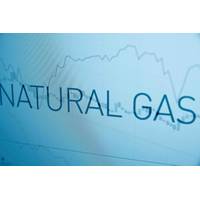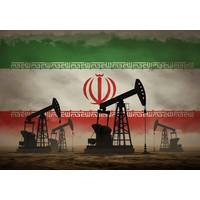EU Targets Power Grid Bottlenecks to Lower Prices, Improve Security

The European Union will prioritise fixing eight power grid bottlenecks, the Commission President said on Wednesday, in an effort to lower the bloc's uncompetitive energy prices and improve energy security."I am presenting today a new initiative called Energy Highways. We have identified eight critical bottlenecks in our energy infrastructure. From the Oresund Strait to the Sicilian Canal," European Commission President Ursula von der Leyen said in her State of the Union address in Strasbourg."We will now work to remove…
After US pressure, the EU is considering a faster Russian gas and oil exit.
Ursula von der Leyen, the head of the European Commission, said that new sanctions would include a quicker phase-out of Russian fuels. This comes after U.S. demands to stop buying Russian crude oil. EU officials are currently in Washington, DC to discuss the coordination of further sanctions against Russia. The EU and U.S. are considering tougher measures to cut Moscow's revenues, but internal divisions, and the need for international support, raises questions about how effective these steps will be at isolating Russia.
After US pressure, EU looks to accelerate Russian oil and gas withdrawal
Ursula von der Leyen, the head of the European Commission, said that new sanctions would include a quicker phase-out of Russian fuels. This comes after U.S. pressure for an end to Russian oil purchases. EU officials are in Washington, D.C. to coordinate new sanctions against Russia with the Trump administration. A White House official revealed that Trump, in an effort to end Russia’s war against Ukraine, had told European leaders to stop purchasing oil from Russia last week. Trump has also asked the EU to impose tariffs of up to 100% on China and India to put pressure on Moscow.
New Zealand's Transpower plans to upgrade the North-South Islands Power Link with $653 million.
Transpower announced on Tuesday that it has applied to the New Zealand Commerce Commission to approve its NZ$1.1bn (US$653,40m) plan to upgrade high voltage direct current (HVDC), the electricity link between New Zealand's North Island and South Islands. The project consists of replacing three old submarine cables, adding a new cable to increase transfer capacity, and building new cable terminations on both sides Cook Strait. Surveys have shown that the cables will deteriorate as expected by early 2030s and need to be replaced.
The price of gas in Europe is stuck in a sideways trend due to the lack of a new impetus.
The Dutch and British gas price were not much different on Friday morning. They continued to trade within a narrow range, despite the lack of any news that could affect the market. There was also no change in the overall supply and demand balance. LSEG data shows that the benchmark Dutch front-month contract for the TTF hub fell 0.08 euros, or $11.11/mmBtu to 32.45 Euros per megawatt hour at 0855 GMT. The Dutch day-ahead contracts was up by 0.30 euros to 31.78 Euros/MWh. The British day-ahead contracts fell 1.50 pence, to 78.60 cents per therm.
As the price cap increases by 2%, millions of Britons will see their energy bills increase.

After Ofgem raised its price cap to 2% in October, millions of British households who are already struggling with tight budgets will be faced with higher energy bills. This is despite the fact that the government is trying to reduce energy costs. The regulator, which is a non-ministerial department of the government, has raised prices after the inflation rate reached its highest level in 18 months, in July, and as the government faces increasing pressure regarding the affordability of the net zero plan. The cap has been increased by 35 pounds for the period July-September.
EUROPE GAS-Prices rise after fresh Ukraine infrastructure attacks

After initially trading in a sideways direction, Dutch and British wholesale prices of gas rose on Thursday after Russia attacked the key storage infrastructure of gas in Ukraine. This comes at a time when there is growing concern about the rapid filling of European gas storages. LSEG data shows that the benchmark Dutch front-month contract was up by 1.18 euros to 32.95 Euro per megawatt hour or $11.21 per mmBtu at 1507 GMT. The British contract for the front month rose 3.34 pence to 82.35 cents per therm. Meanwhile, the price of the day-ahead contract was up 1.70 penny at 81.90 cents per therm.
Polish President vetoes Bill to ease rules on building wind farms

Karol Nawrocki, the Polish president, vetoed on Thursday a bill that would have eased rules for onshore wind farm construction. He said that the government's decision to combine it with a price freeze on energy was "blackmail". The accusation is a new salvo in the battle against the centre-right government of Donald Tusk. He is an arch rival to the allies of the president in the nationalist Law and Justice party (PiS). It would have reduced the distance between residential areas and planned installations, but kept permitting restrictions for projects near protected natural areas.
Orlen's Q2 profits jump as upstream gains and write-downs offset each other

Orlen, a Polish energy company, reported on Thursday a nearly 74% increase in its second quarter profit. A strong performance upstream helped to offset the effects of lower refining and asset writedowns. EBITDA LIFO (core profit adjusted for changes to the value of oil inventories) reached $7.72 billion ($2.12 billion), and this was achieved despite 1.49 billion in writedowns mainly in upstream and downstream. Oil refiners' upstream business has reversed a massive year-ago loss, thanks to a windfall tax imposed by the government in order to fund energy prices freezes.
Trade groups and companies warn that Trump's America First policy on biodiesel could be costly to US businesses, consumers and trade groups.
According to some trade groups in refining and biofuels, the Trump administration's efforts to discourage the use foreign feedstocks for domestic biodiesel may lead to higher prices and a reduction of domestic production. The warning is a reflection of the ongoing tension between the Environmental Protection Agency under President Donald Trump and its traditional allies, the energy and agricultural industries. Trump has promised that he will lower consumer energy prices, but he is also trying to advance the America First agenda by supporting domestic production via trade protectionionism. This can sometimes lead to higher costs.
Naturgy's net profit for the first half of 2010 increases 10% due to higher energy prices

The net profit of Spanish power company Naturgy for the first half rose by 10% compared to the same period last year, exceeding some analysts' expectations as cold weather and international tensions boosted energy prices. Naturgy's shares fell by 1.2% at mid-morning after the Spanish lower chamber rejected a bill that was proposed by the Spanish government on Tuesday to strengthen the market for electricity following the massive blackout in April. In the first half, net sales totaled 9.96 billion euro and the company's profit increased to 1,15 billion euros.
US Natural Gas Prices Rise to Two-Week High Amidst Hot Weather

U.S. natural gas futures edged up about 1% to a two-week high on Wednesday as hot weather boosts the amount of gas power generators must burn to keep air conditioners humming and on near-record flows of gas to LNG export plants.Front-month gas futures for August delivery on the New York Mercantile Exchange rose 2.8 cents, or 0.8%, to settle at $3.551 per million British thermal units, their highest close since June 27 for a second day in a row.The U.S. National Hurricane Center said a tropical system off the west coast…
UK rejects zonal energy pricing
The British government is not moving to a zoned system of wholesale energy prices, but will instead try to gain greater control over the planning process in order to determine where to build clean energy infrastructure. The UK, with some of the world's highest electricity prices, struggles to find a way to build wind and solar farms, as well as transport them to the various parts of the country. The government had looked at dividing the country into zones with a pricing system based on demand and supply, hoping to encourage businesses to move closer to renewable sources of energy, and potentially reduce the cost for transmission.
Gas prices in the Netherlands and Britain are stable with warmer weather forecast
The Dutch and British wholesale prices of gas traded within a narrow range Wednesday morning, amid the expectation of warmer weather conditions and stable supplies. LSEG data shows that the benchmark Dutch front-month contract was up 0.07 euros to 34.65 Euro per megawatt hour or $11.92/mmBtu at 0818 GMT. The Dutch day-ahead contracts was down 0.17 Euro at 34.17 EUR/MWh. The British day-ahead contracts was up 0.25 cents at 82.50 pence/therm. In a daily note, LSEG analyst Wayne Bryan stated that he expects TTF day-ahead price to remain within its recent range without any significant deviation based upon current fundamentals.
EIA: US oil production will be lower than expected in 2025 due to falling prices
Energy Information Administration's monthly report on Tuesday predicted that the U.S. would produce less oil by 2025 than originally expected, as lower oil prices have caused U.S. producers this year to reduce their activity. In its report on short-term energy forecast, the EIA stated that it expects to see 13.37 million barrels of oil per day produced by the world's biggest oil producer in 2025. This is compared to last month's estimate of 13.42 millions bpd. The U.S. is expected to produce 13,37 million barrels per day in 2026. This is the same as the previous estimate.
Palm oil trades in a sideways fashion as Dalian oils and Chicago soyoil counter each other.
Malaysian palm futures were in a narrow range on Thursday as the strength of rival Dalian oils supported gains, while the weakness of crude oil and Chicago soybean oil limited them. At midday, the benchmark palm oil contract on Bursa Derivatives Exchange for September delivery gained 12 ringgit (0.3%), to 4,074 Ringgit ($965.17) per metric ton. On Wednesday, the contract increased by 2.37%. Anilkumar bagani, research director at Mumbai-based Sunvin Group, said that the crude palm oil futures market was trading sideways, as the bullish momentum of Chinese vegetable oils in Asian hours supported it.
As Wars Rage, Middle East's Waning Influence on World Oil Prices Exposed

The contained move in oil prices during the Israel-Iran war highlights the increasing efficiency of energy markets and fundamental changes to global crude supply, suggesting that Middle East politics will no longer be the dominant force in oil markets they once were.The jump in oil prices following Israel's surprise attack on Iran was meaningful but relatively modest considering the high stakes involved in the conflict between the Middle East rivals.Benchmark Brent crude prices, often considered a gauge for geopolitical risk…
Polish Parliament approves liberalisation in wind farm regulations
The Polish Parliament approved legislation that eases rules for building onshore wind farms. According to the government, this is an important step in boosting renewable energy production and lowering electricity prices. In a vote held late Wednesday night, the rules reduced the distance between planned installations, and residential areas, but kept permitting restrictions for projects near protected natural areas. Bill will include clauses that will freeze energy prices until the end the year for householders, as well as incentives for municipalities and home owners in the areas nearest to new wind farms.
Miliband pledges to lead the way in clean energy and demand corporate net-zero strategies
Ed Miliband, the energy secretary, said that Britain is on the right track by cutting emissions and investing in a green economy. He also pledged to press large companies to explain how they will align their business with this shift. Opposition parties are putting pressure on the government over perceived costs associated with the move to net zero emission at a moment when energy prices remain high after Europe has shifted away from Russian imports due to Moscow's invasion of Ukraine in 2022. Miliband, speaking to climate investors…
EU agrees on loosening gas storage regulations

After concerns were raised that the EU's earlier rules regarding filling gas storage could have led to an increase in energy prices, the EU member states and the EU parliament reached agreement on a loosening of the EU's regulations on filling. The European Commission announced the agreement on Tuesday. In 2022, the EU introduced its gas storage regulations to ensure that EU countries have a buffer during winter. This was after Russia had cut off gas deliveries in response to its invasion of Ukraine. The resultant spike in gas prices across Europe caused by this action.